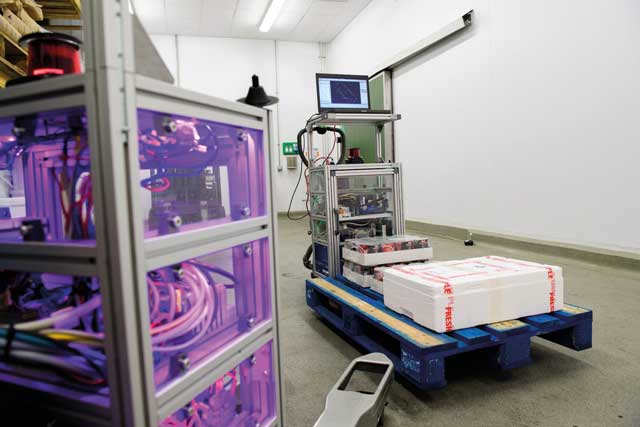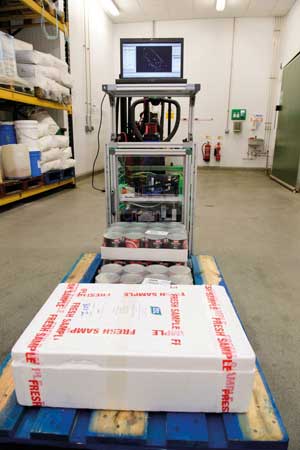 Researchers at the University of Lincoln are about to embark on tests of prototype autonomous forklift trucks in a warehouse environment as part of a European project.
Researchers at the University of Lincoln are about to embark on tests of prototype autonomous forklift trucks in a warehouse environment as part of a European project.
The project aims to make possible the introduction of next generation automated guided vehicles in warehouses for tasks such as packing, palletising and transporting goods. The self-optimising forklifts will be able to work safely alongside human workers, automatically adapting to changing demands.
The four-year Intra-Logistics with Integrated Automatic Deployment project (ILIAD), a multinational collaboration of robotics specialists in the UK, Sweden, Italy and Germany, is funded by a €7m grant from the EU Horizon 2020 fund. The consortium is led by Örebro University in Sweden, and includes the University of Lincoln, the University of Pisa, and Leibniz University in Hannover. Industrial partners include Bosch, Kollmorgen Automation, ACT Operations Research, Logistic Engineering Services and Orkla Foods.
ILIAD aims to develop a single integrated system ready for low-cost deployment without the need for major infrastructure investment. Each forklift will be equipped with advanced computer vision and artificial intelligence to detect, track and predict the behaviour of humans and to plan movements based on the machine’s own observations of warehouse layouts and patterns of activity. Each robotic vehicle will be self-optimising, learning from self-collected data, making the fleets fully scalable with the option of adding or removing robots at any time.
 Though the aim is to develop a flexible system suitable for many different industries, the researchers will use the fresh food sector as their development setting. This is because of the industry’s particularly challenging requirements: short shelf life of products, the need for complete traceability, the high cost of waste, and pressure for rapid responses to changing market needs.
Though the aim is to develop a flexible system suitable for many different industries, the researchers will use the fresh food sector as their development setting. This is because of the industry’s particularly challenging requirements: short shelf life of products, the need for complete traceability, the high cost of waste, and pressure for rapid responses to changing market needs.
In its contribution, the Lincoln team will focus on long-term operation of the ILIAD system, including maintenance of environment maps over time, and learning and predicting activity patterns of human co-workers.
Following delivery of prototypes to Lincoln a few weeks ago, the team is about to move from simulation work to the “realisation” phase in which the robots will initially undergo trials in the model warehouse at the university’s National Centre for Food Manufacturing.
Professor Tom Duckett, director of the Lincoln Centre for Autonomous Systems at the university and a principal investigator on the ILIAD project, said: “The project will push the state-of-the-art in human-robot interaction, overcoming persistent barriers to greater adoption of automation in logistics operations in many industries, starting with the food sector. The fleets will be self-deploying and self-optimising, removing much of the capital cost and disruption of introducing robotic technologies. Most importantly, though, we will show that autonomous vehicles can operate safely and efficiently alongside human co-workers and human driven vehicles in complex, dynamic warehouse settings.”
Mark Swainson, lead for research at the National Centre for Food Manufacturing, said: “The massive scale of food volumes moved by the sector means that being able to do this quickly and efficiently can make the difference between business success or failure. Robots seamlessly integrating alongside humans, often working collaboratively, will unlock significant productivity advances in the sector.”

